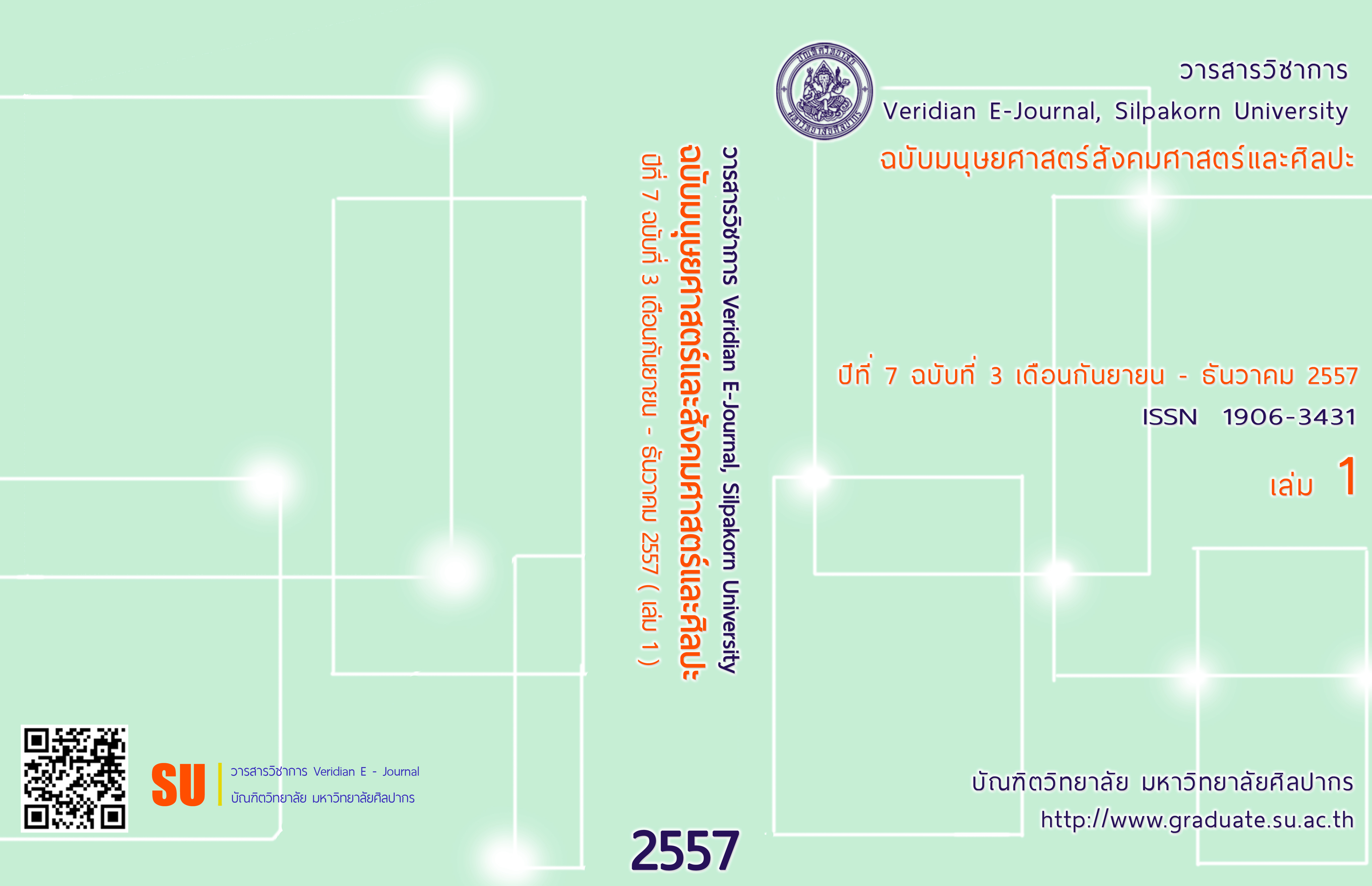การคุกคามทางเพศบนสังคมเครือข่าย / SEXUAL HARASSMENT ON SOCIAL NETWORK
Main Article Content
Abstract
บทคัดย่อ
(บทความนี้เป็นส่วนหนึ่งของวิทยานิพนธ์นิติศาสตรมหาบัณฑิต สาขากฎหมายอาญาและอาชญาวิทยา คณะรัฐศาสตร์และนิติศาสตร์ มหาวิทยาลัยบูรพา เพื่อศึกษาถึงปัญหาที่เกิดขึ้นในปัจจุบันที่เกี่ยวข้องกับการใช้อินเทอร์เน็ตแล้วเกิดการกระทำความผิดเกี่ยวกับการคุกคามทางเพศขึ้น ซึ่งต้องยอมรับว่าเกิดเหตุการณ์คุกคามทางเพศขึ้นบนสังคมเครือข่าย เพราะสังคมเครือข่ายเปรียบเสมือนโลกอีกโลกหนึ่ง เป็นสังคมอีกรูปแบบหนึ่ง แต่ว่าในสังคมเครือข่ายนั้นแตกต่างจากสังคมจริง ๆ คือ สังคมเครือข่ายไม่สามารถระบุตัวตนที่แท้จริงของบุคคลผู้อยู่ในสังคมเครือข่ายได้ทั้งหมด เมื่อไม่สามารถที่จะยืนยันระบุตัวบุคคลได้ ก็เป็นการง่ายที่จะเกิดการกระทำความผิดขึ้น เพราะไม่สามารถติดตามร่องรอยของผู้กระทำความผิดได้ ทำให้เกิดกรณีการทำผิดซ้ำอีกโดยผู้กระทำผิดกระทำกับผู้เสียหายเดิมโดยอาจจะเปลี่ยนชื่อในสังคมเครือข่าย หรือไปกระทำกับผู้เสียหายรายใหม่ต่อไปเรื่อย ๆ และเมื่อกระทำความผิดแล้วไม่มีการดำเนินการใด ๆ ก็ทำให้เกิดพฤติกรรมเลียนแบบ ทำให้เกิดเป็นปัญหาในสังคมอินเทอร์เน็ตได้ โดยที่ยังไม่มีตัวบทกฎหมายที่ชัดเจนในการเอาผิดกับผู้กระทำความผิด ทั้งประมวลกฎหมายอาญาและพระราชบัญญัติความผิดเกี่ยวกับคอมพิวเตอร์ พ.ศ.2550 โดยเฉพาะพระราชบัญญัติความผิดเกี่ยวกับคอมพิวเตอร์ไม่ได้ ไม่ได้บัญญัติความผิดเกี่ยวกับการคุกกคามทางเพศบนอินเทอร์เน็ตไว้เป็นการเฉพาะเลย อีกทั้งประมวลกฎหมายอาญาก็ไม่มีบทบัญญัติโดยเฉพาะมีแต่บทบัญญัติทั่วไปซึ่งยากแก่การบังคับใช้ในการนำผู้กระทำความผิดมาลงโทษ)
Abstract
(This article is an excerpt from the Master of Laws thesis in the field of Criminal Law and Criminology, Faculty of Political Science and Law, Burapha University. The purpose of this thesis is to study the emerging problems relating to the use of internet that leads to an offence of cyber sexual harassment which has received a lot of attention in recent year.
It must be recognized that sexual harassment could also occurs in the social networking society as it functions as another world, or new type of society. However, social networking society is quite different to the real world because, in social networking society, the identity of a net user can not be absolutely or accurately revealed or found. The difficulties in identifying the net user who committed the sexual harassment and tracking the traces of the harasser/offender in cyberspace make such cyber sexual harassment easier to occur. This critical situation leads to the repeating of harassing behavior conducted by the same harasser to the same victims by merely changing the username used in the cyberspace. More importantly, the harasser may repeatedly conduct his/her harassing activities to a new victim as well. Further, the difficulties in identifying and taking a legal action against harasser who committed a cyber sexual harassment may serve as a source for the imitating of harassing behavior which could cause serious problems in social networking society. One reason that makes this situation more serious is that there is no specific legislation addressing and dealing with the issues of cyber sexual harassment. Both Thai Penal Code and Computer-Related Crime Act B.E. 2550 have no specific provision explicitly regarded sexual harassment in cyberspace as legal wrong. There are only general provisions that may be relied to help victims to seek redress at the moment. However it seems that general provisions could not be applied effectively to the offences of sexual harassment in the cyberspace.)

